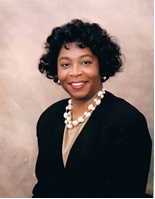Ralph Bunche was an American diplomat and political scientist whose work on domestic policy and foreign affairs shaped the struggle for human rights. Bunche was the first African-American to win the Nobel Peace Prize. His consistent avowal of African rights gave American statesmen the example they needed to pursue civil rights during segregation.
Ralph Bunche was born in Detroit, Michigan on August 7th, 1904. His family later moved to Los Angeles, California where he would enroll in several schools during his peripatetic childhood. Bunche studied at the University of California, Southern Branch and graduated with high honors there at the age of 23. It was the second time he had served as class valedictorian, the first he held at Jefferson High School years prior. He set high standards for himself as a varsity basketball athlete and budding scholar. Upon graduation from college, Bunche took a job as a janitor and later a teacher to save money for his graduate studies. He received his Master’s in 1928 while working as a professor at Howard University; he would later move on to Harvard University to pursue a doctoral fellowship in International Relations. His forays into diplomatic affairs centered largely on the politics of the African continent during the heights of colonial rule. The Rosenwald Fellowship allowed him to examine the social institutions of Togoland and Dahomey. His work was so thorough that he was honored with the Toppan Prize for outstanding work in social studies.
But Bunche’s career was not about winning awards; it was about defining the problem of race across the African diaspora and finding solutions to the nagging iniquities in the global conscience. In his quest to offer workable solutions, Bunche served as an educational leader on the New York City Board of Education, Professor Emeritus at Howard University, trustee at Oberlin College and several other posts where he could disseminate the information he collected. His first book A World View of Race was the premier sociological work to approach the issue of race from a wide-angled view. It solidified his place as a scholar, and challenged his home country’s political order by comparing the injustices abroad to the seething conflicts in America. His early academic work informed his civic duties as a member of Roosevelt’s esteemed Black Cabinet, preliminary planner for the United Nations and diplomat in the Arab-Israeli mediation process. As he accumulated experience with world issues, he was apt to challenge the segregationist policies of the South. He refused an appointment as assistant Secretary of State under Harry Truman because of his opposition to the unfair laws still practiced in parts of the country. Nevertheless, he pushed forward where he could to promote world peace.
Bunche was often criticized by new guard leaders of the Black Power Movement for his government loyalty. Although he was working within a broken system, he toppled some of the powerful biases that held Blacks in a lower position for so long.
RELATED STORIES
THE WOMAN’S WOMAN: Sojourner Truth
THE ACTIVIST: Fannie Lou Hamer
THE DIPLOMAT: Ralph Bunche was originally published on newsone.com














